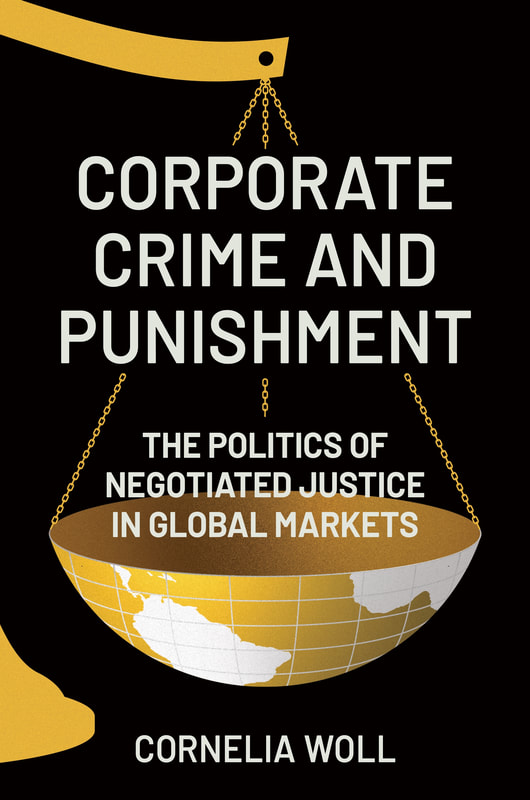Corporate Crime and Punishment:
The Politics of Negotiated Justice in Global Markets
|
Cornelia Woll
The geopolitics of American law enforcement and how it changed corporate criminal accountability in other countries Princeton University Press, 2023 248 pages, ISBN: 978-0-6912-5032-8 Visit Princeton University Press or Amazon to order. Praise “Topical and interesting. The book is a very appealing blend of scholarship, policy analysis and normative discussion. It is authoritative and convincing in terms of both the evidence and the scholarship covered.” - Jason Sharman, University of Cambridge “This is a smart, well-written, well-organized, and succinct discussion of an important recent development in the global prosecution of corporate criminal activity. Analytically sophisticated and empirically grounded, a model of clarity and economy of expression, the book provides a serious and significant contribution.” - Bruce Carruthers, Northwestern University |
Description
Over the past decade, many of the world’s biggest companies have found themselves embroiled in legal disputes over corruption, fraud, environmental damage, tax evasion, or sanction violations. Corporations including Volkswagen, BP, and Credit Suisse have paid record-breaking fines. Many critics of globalization and corporate impunity cheer this turn toward accountability. Others, however, question American dominance in legal battles that seem to impose domestic legal norms beyond national boundaries. In this book, Cornelia Woll examines the politics of American corporate criminal law’s extraterritorial reach. As governments abroad seek to respond to US law enforcement actions against their companies, they turn to flexible legal instruments that allow prosecutors to settle a case rather than bring it to court. With her analysis of the international and domestic politics of law enforcement targeting big business, Woll traces the rise of what she calls “negotiated corporate justice” in global markets. Woll charts the path to this shift through case studies of geopolitical tensions and accusations of “economic lawfare,” pitting the United States against the European Union, China, and Japan. She then examines the reactions to the new legal landscape, describing institutional changes in the common law countries of the United Kingdom and Canada and the civil law countries of France, Brazil, and Germany. Through an insightful interdisciplinary analysis of how the prosecution of corporate crime has evolved in the twenty-first century, Woll demonstrates the profound transformation of the relationship between states and private actors in world markets, showing that law is part of economic statecraft in the connected global economy. |

